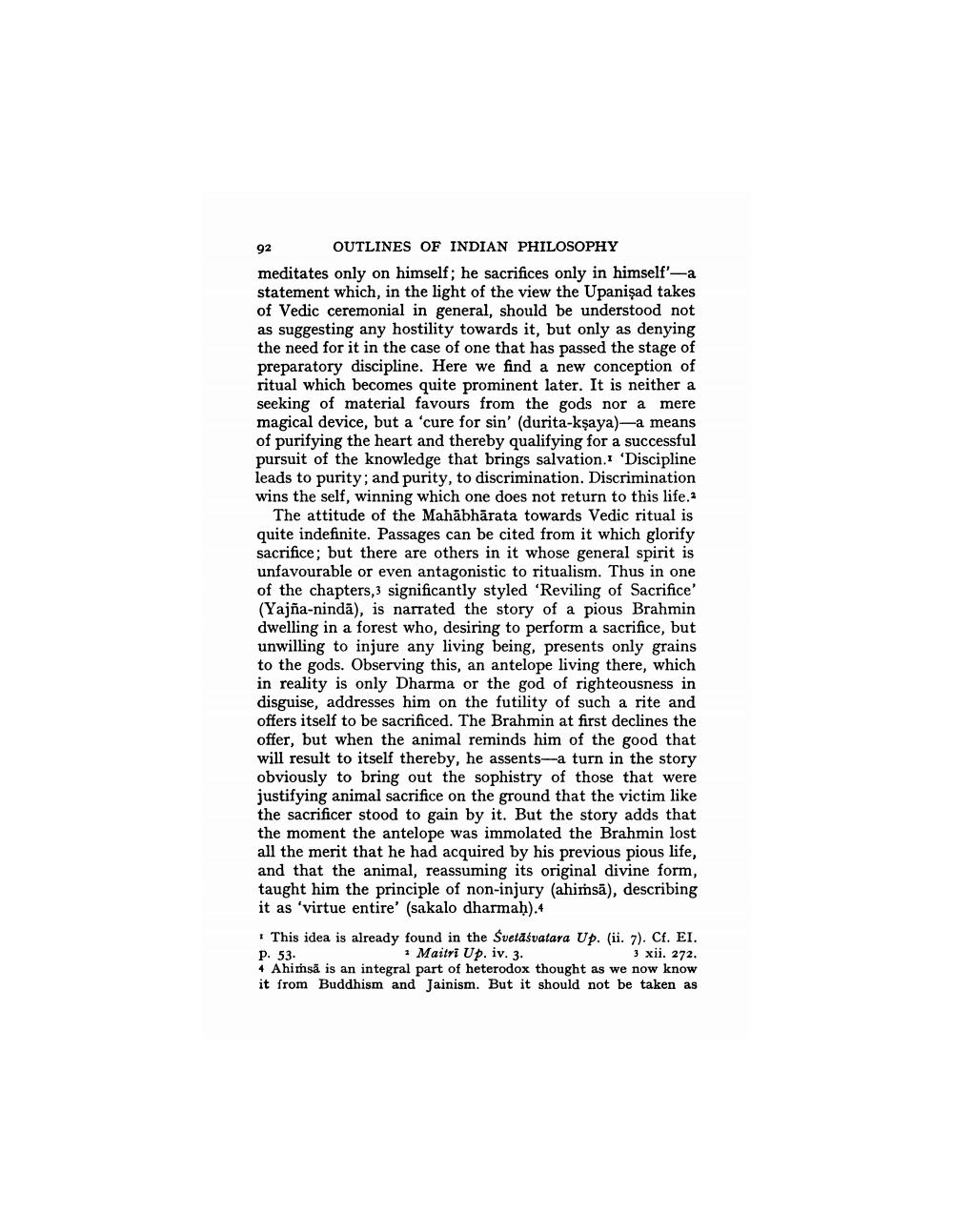________________
OUTLINES OF INDIAN PHILOSOPHY meditates only on himself; he sacrifices only in himself-a statement which, in the light of the view the Upanisad takes of Vedic ceremonial in general, should be understood not as suggesting any hostility towards it, but only as denying the need for it in the case of one that has passed the stage of preparatory discipline. Here we find a new conception of ritual which becomes quite prominent later. It is neither a seeking of material favours from the gods nor a mere magical device, but a 'cure for sin' (durita-kşaya)-a means of purifying the heart and thereby qualifying for a successful pursuit of the knowledge that brings salvation. 'Discipline leads to purity; and purity, to discrimination. Discrimination wins the self, winning which one does not return to this life.
The attitude of the Mahābhārata towards Vedic ritual is quite indefinite. Passages can be cited from it which glorify sacrifice; but there are others in it whose general spirit is unfavourable or even antagonistic to ritualism. Thus in one of the chapters,3 significantly styled 'Reviling of Sacrifice' (Yajña-nindā), is narrated the story of a pious Brahmin dwelling in a forest who, desiring to perform a sacrifice, but unwilling to injure any living being, presents only grains to the gods. Observing this, an antelope living there, which in reality is only Dharma or the god of righteousness in disguise, addresses him on the futility of such a rite and offers itself to be sacrificed. The Brahmin at first declines the offer, but when the animal reminds him of the good that will result to itself thereby, he assents-a turn in the story obviously to bring out the sophistry of those that were justifying animal sacrifice on the ground that the victim like the sacrificer stood to gain by it. But the story adds that the moment the antelope was immolated the Brahmin lost all the merit that he had acquired by his previous pious life, and that the animal, reassuming its original divine form, taught him the principle of non-injury (ahimsā), describing it as 'virtue entire' (sakalo dharmah).4
This idea is already found in the Svetāśvatara Up. (ii. 7). Cf. EI. P. 53. Maitri Up. iv. 3.
3 xii. 272. 4 Ahimsă is an integral part of heterodox thought as we now know it from Buddhism and Jainism. But it should not be taken as




